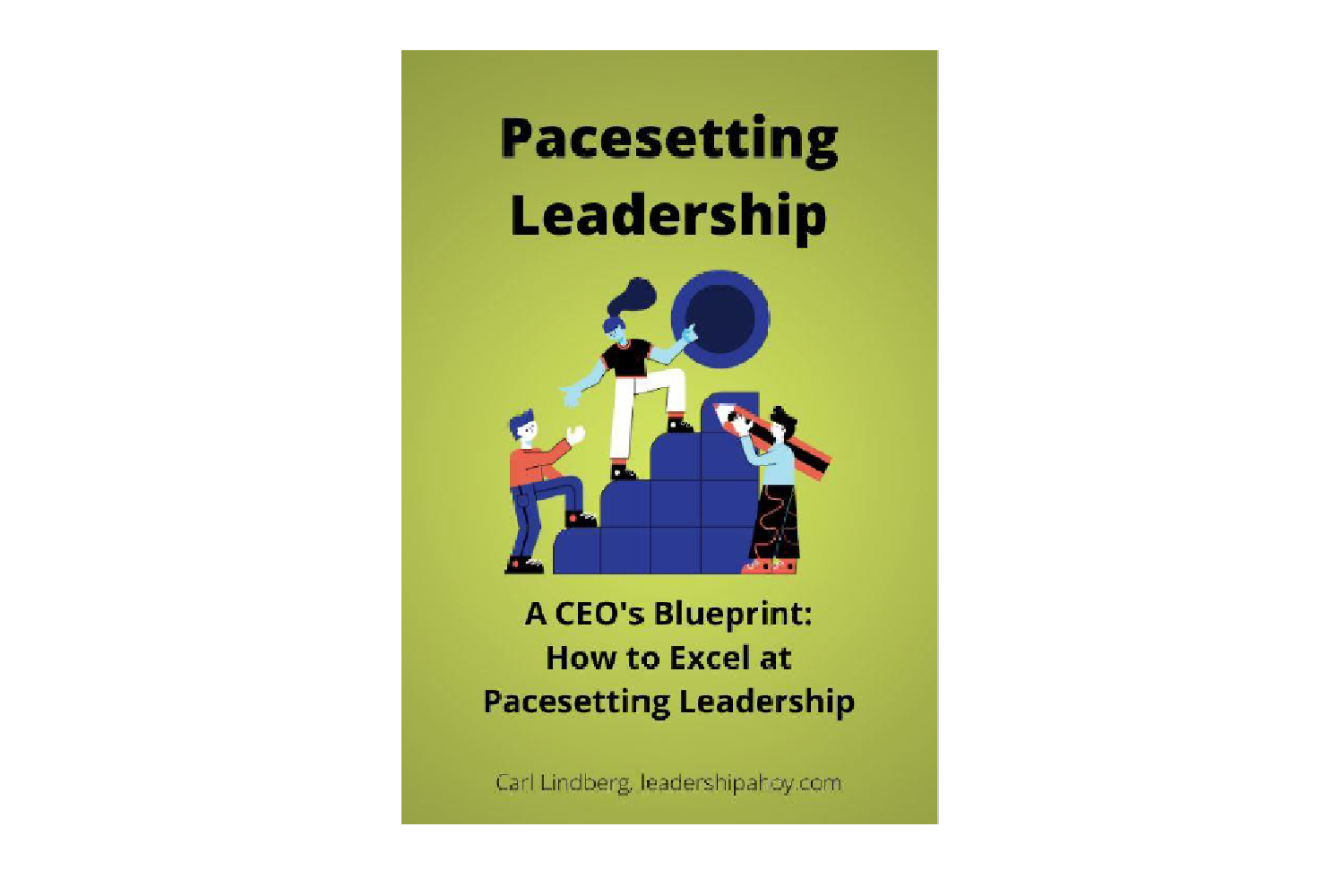As a CEO, I am brutally aware that we live in an ever-changing world where technological and societal change brings advantages and challenges in unison. Companies demand plenty of skillsets to tackle these shifts and attain success in their industries. Leadership skills are undoubtedly crucial, yet Leadership Development often gets too little focus.
Why Do We Need Leadership Development?
Leadership development is a requirement for leaders to stay effective in a rapidly changing environment. Evolving work methods, stakeholder requirements, and disruptive technologies mean that leaders must constantly search for new ways to lead with optimum impact and efficiency.
Why is Leadership Development Important?
Leadership Development enables continuous improvement and the acquisition of new methods, abilities, and skills, which help leaders to improve their effectiveness and take on future challenges. Leadership development is essential for retaining and enhancing the ability to lead others over time.
Leadership requires much more than management skills and needs continuous development for greater effectiveness, impact, and performance. Join us as we discuss the importance of leadership development to discover the potential for growth in your professional field. Visit our products & services page to see what we have to offer in terms of books, courses, and coaching.
Leadership Development
Leadership skillsets used to be more straightforward, especially in the early days of trait theories of leadership, although already back then imperative to an organization’s potential for success. Past leaders would focus on the basics, including leading and motivating others in professional spaces and keeping a versatile approach to emerging management theories.
But, the transition into the digital era has brought about opportunity coupled with increased complexity, requiring swift adaptation to a changing world and evolving stakeholders.
Leaders can no longer solely rely on experience and prior learnings, as many approaches and methods are becoming obsolete. Adapting to new challenges requires dependable learning methods, demanding effective, speedy, consistent, and impactful leadership development approaches.
The primary focus of leadership in the modern world still includes foundational leadership skillsets but a new and intense focus on change and adaptation. Companies have realized that it’s nearly impossible to find natural leaders who can apply skills in a specific professional field while adapting quickly to changes. According to the World Economic Forum, Leadership and Social Influence[i] are promptly becoming the fastest-growing workplace skills for the projected future. Approximately 57% of human resources departments now prioritize current and future leadership pipelines[ii].
Simultaneously, leadership is becoming increasingly critical for organizations hoping to stay ahead of the competition while motivating a more demanding workforce and satisfying customers with higher expectations than ever. (Be inspired by 12 common leadership styles and how to choose yours.)
Benefits of Leadership Development
Leadership development allows managers and corporate leaders to keep up with the continuous evolution in leadership and its associated skills, such as communication, motivation, empathy, management, visualization, analysis, and others. The fast pace of today’s change requires stronger analytical skills, better awareness, and more visionary leadership than ever before, underlining the necessity of continuous improvement and leadership development. Here are three areas that you can affect positively by the proper use of leadership development for yourself and your organization.
Getting and Edge vs. Competition
Awareness of societal change, disruptions within the competitive landscape, cultural understanding, global politics, and customer trends enables adaptive leadership methods and strategies in the workspace, applicable to many professional areas. While many leadership skills focus on managing employees and teams, appropriate development of a leader’s awareness, reaction speed, inventiveness, and execution will avoid disruption and instead enable the disruption of others, drastically impacting calculated predictions, profits, and the bottom line.
On top of this, today’s intense competition means that others are often supplying the same service or selling the same product as you. To succeed, you need to be better than the competition, i.e., cheaper, faster, better quality, or similarly to succeed. Being better means that leadership is even more important to get that extra performance out of the team. Proper leadership development provides leaders with new tools and perspectives, reflection, self-awareness, and more impactful and intentional leadership, helping the company stay ahead of the curve.
Worker Morale and Motivation Improvement
While it is undoubtedly complex and challenging for leaders to keep up with change and use the right leadership approaches and tools accordingly, the pressure does not solely rest on the leaders. Employees and teams also feel the heat, as they too have to adapt fast to so much transformation in their surroundings.
The team members’ comfort zones are consistently challenged when interacting with customers and colleagues to devise strategies and business practices and the chase for ever better performance in the world of stock noted companies, etc. They need leaders they can rely on for professional interaction and leaders that provide strength and comfort in times of change while still having empathy for others. Employees also need leaders they can learn from as the environment continuously shifts and turns around them.
Leadership development in emotional intelligence, incentives, motivational drivers, leading by purpose, ethical leadership, and many other areas can provide leaders with better tools to build worker morale and motivation, resulting in increased performance. Our democratic leadership course can give you a substantial edge in these aspects.
Employee Retention Focus
In recent years, employee turnover has been increasing drastically, as long-term employment seems to be waning on a broad scale. There are numerous reasons for these occurrences, and it has led to employees feeling detached from the employing organization itself, focusing on self-interest or career-driven intentions.
Many companies have suffered dire outcomes due to a lack of employee engagement, ranging from mishaps caused by unreliable staff to an overall lack of loyalty, performance, and trust. Poor leaders lead to higher employee turnover, and skilled, trusted, and likable leaders can lead to stronger performance, commitment, and employee retention rates. Positive professional relationships and camaraderie in the workplace are directly impacted by leadership approaches and the ongoing development of necessary leadership skills. Employee retention grows in importance as a consequence of the increased need for knowledge and specialization. Hence, retention becomes a more critical task for leaders as well as Human Resources.
Leadership development can bring awareness of employee engagement and retention issues and improve empowerment, empathy, and transparency, making people feel more connected to their team, organization, and purpose, thus increasing retention.
Leadership Development Examples
Although the outline of a great leader has supposedly been made crystal clear, see our article about the Great Man Theory for an outdated but amusing example, the best method or learning path for leadership development remains relatively vague. Finding the right path for leadership development becomes even more complex since every individual and business is unique, as is the dynamic within each team. This diversity and complexity mean that no leadership development approach is one-size-fits-all.
Thankfully, many approaches to leadership development have been identified and refined over the years, providing plenty of choice for those seeking leadership improvement and training. We’ve gathered some of the most popular and effective leadership development methods as examples, so you can identify what sort of approach might be practical and impactful for you and your organization.
Leadership Learning and Development (L&D) Programs
One of the best ways to assure high-quality leadership development strategies and learning paths is to arrange teachings by professionals. The main benefit of this approach is consistent learning and development over time, projected learning outcomes, and a firm grip over the entire learning journey.
Those involved in these Leadership L&D programs have the advantage of a planned learning path, established goals, and a structured framework to follow. This is topped off with plenty of support from skilled professionals, who are not only well-versed in leadership development itself but experienced in guiding others along unique learning journeys.
These programs are primarily advantageous for the development of leadership skillsets, knowledge, and invaluable qualities. They will not necessarily provide learning experiences through real-world scenarios or prepare blossoming leaders for the trials and challenges that await them. Adding the element of practical learning opportunities can radically improve the outcome of a Learning and Development Program.
The primary deterrence of L&D programs concerns the cost. Leadership learning and development programs can be pricy in many cases, especially if the program is extensive or time-consuming. Additionally, some programs can take a toll on budding leaders or make them unavailable in the workplace for the duration of the program. However, many pitfalls can be avoided with the right approaches and proper planning.
A larger leadership development such as a full program requires a leadership development plan to set a more detailed path and enable proper follow-up. Check out our article here, it offers great guidance on this: How to create a leadership development plan.
Leadership Development through Mentoring and Coaching
Mentoring may be an excellent option if you know of a talented leader who works in the same field or professional context and is experienced in the industry. Mentoring can be very effective if a good mentor-mentee match is achieved. Mentoring offers versatility and personalized learning possibilities, in addition to being exposed to real-world experiences and opportunities for practical learning.
The primary benefit of mentoring is that teachings often get personalized since this type of leadership development often connects to familiar situations, settings, and contexts. Those training to be leaders can learn theoretically and practically, making it simpler to transition into leadership roles within the company or industry further down the line. The possibility to create a strong bond between the mentor and the mentee is a bonus.
However, this has substantial pitfalls, and the investment on behalf of the mentor is substantial. Please read our in-depth article on coaching leadership for some great guidance on this.
Collective Leadership Strategies
Collective Leadership focuses on creating a favorable environment where leadership can blossom rather than actively developing leaders themselves. Essentially, this approach involves the entire team in decision-making and leadership, exposing them to dialogues and discussions they might otherwise never have experienced while bringing out more ideas and perspectives at the same time.
Collective leadership is a more indirect approach to leadership development but can be advantageous when encouraging diversity regarding leadership styles, perspectives, and dynamic leadership approaches in the workplace. It is a comfortable and natural method for leadership development where people learn from each other and a culture of dialogue and openness in leadership can be established along the way. It does not intend to outline the ‘iconic’ or ‘ideal’ leader in the hope managers may somehow fit into that category over time. (Read more on How leaders influence organizational culture in our article.)
The downside to this can be lack of clarity, waiting times for decisions, and simply indecisiveness. I suggest you use the democratic leadership style instead, which accomplishes a similarly open climate while still having the leader as the clear decisionmaker. Read more about this outstanding leadership style and how it works in our article on Democratic Leadership and the more specific article How can Democratic Leadership be effective, of even try our our democratic leadership course available among our products and services.
Courses for Leadership Development
Leadership development can also be done through courses, focusing on teaching valuable and evergreen leadership skills in unison with knowledge on available tools and information.
The main benefit of this approach is that these courses are quite flexible. Online courses can be taken remotely, may not take time out of work, and provide teachings in manageable chunks over a specified duration. Courses come at a cost but are affordable considering the long-term return on investment, especially if they are discussed and reflected upon later. Sometimes it is as easy as reading a book or an article. I suggest you start by learning a new set of leadership styles that have greatly impacted how I lead in my roles as a CEO by reading our article on the Six Leadership Styles based on Emotional Intelligence.
Outward Thinking Leadership Development Strategies
Leadership development approaches could focus on outward thinking, fairly different from previous years where the predominant area of interest was on the company itself. Leaders need to assess themselves and the organization’s framework compared to economic environments, social contexts, competitors, and other stakeholders.
The modern world has brought additional complexities and opportunities with an increasingly globalized economy. It is good to appreciate that and learn from diverse business cultures in various scenarios and contexts. What can be learned from other cultures, other businesses, and industries, etc.? This approach to leadership development focuses on teaching and enabling leaders to foresee changes and plan ahead using adaptive leadership and other methods instead of remaining reactive to its consequences after the fact.
Leadership Games and Activities
Leadership games and group activities are more easy-going and provide small doses of leadership development. Leadership activities are advantageous for just about anyone, depending on the difficulty level. You can include reflective approaches by asking questions about each individual’s experience and how to improve methods for the future, adding a team-building aspect to the event. Leadership games could involve a domino game, pyramid building, acting out scenes, active listening, and many other things. Please read our article for inspiration and great tips for your next leadership activity session right here: Leadership Activities and Games.
Leadership Development Conclusions
The leaders of companies are well-known for having founded or guided the organization to its current state. But, the employees are ultimately the driving force behind consistent success, and leaders need to continuously develop themselves to build employee engagement, motivation, and confidence. Leadership development is crucial for tackling challenges while inspiring collective efficiency, innovation, and creativity, precious things in the modern world. Remember, all leadership development starts with intent and planning, followed by execution. Make sure you read our article How to create a leadership development plan and then create a plan that fits you or the leader you plan to develop. Please also have a look at the leadership development opportunities we offer here at leadershipahoy.com, products and services.
Leadership Development: Articles and Sources
https://online.norwich.edu/academic-programs/resources/what-is-leadership-development
https://gbr.pepperdine.edu/2017/04/trends-in-leadership-and-leadership-development/
https://www.usd.edu/student-life/leadership-development
https://online.hbs.edu/blog/post/leadership-development-plan
https://www.gartner.com/smarterwithgartner/gartner-top-3-priorities-for-hr-leaders-in-2020/
https://www.weforum.org/agenda/2018/09/future-of-jobs-2018-things-to-know/
https://journalofleadershiped.org/jole_articles/leadership-development-three-programs-that-maximize-learning-over-time/
https://hr.uiowa.edu/development/leadership-development
[i] https://www.weforum.org/agenda/2018/09/future-of-jobs-2018-things-to-know/
[ii] https://www.gartner.com/smarterwithgartner/gartner-top-3-priorities-for-hr-leaders-in-2020/




